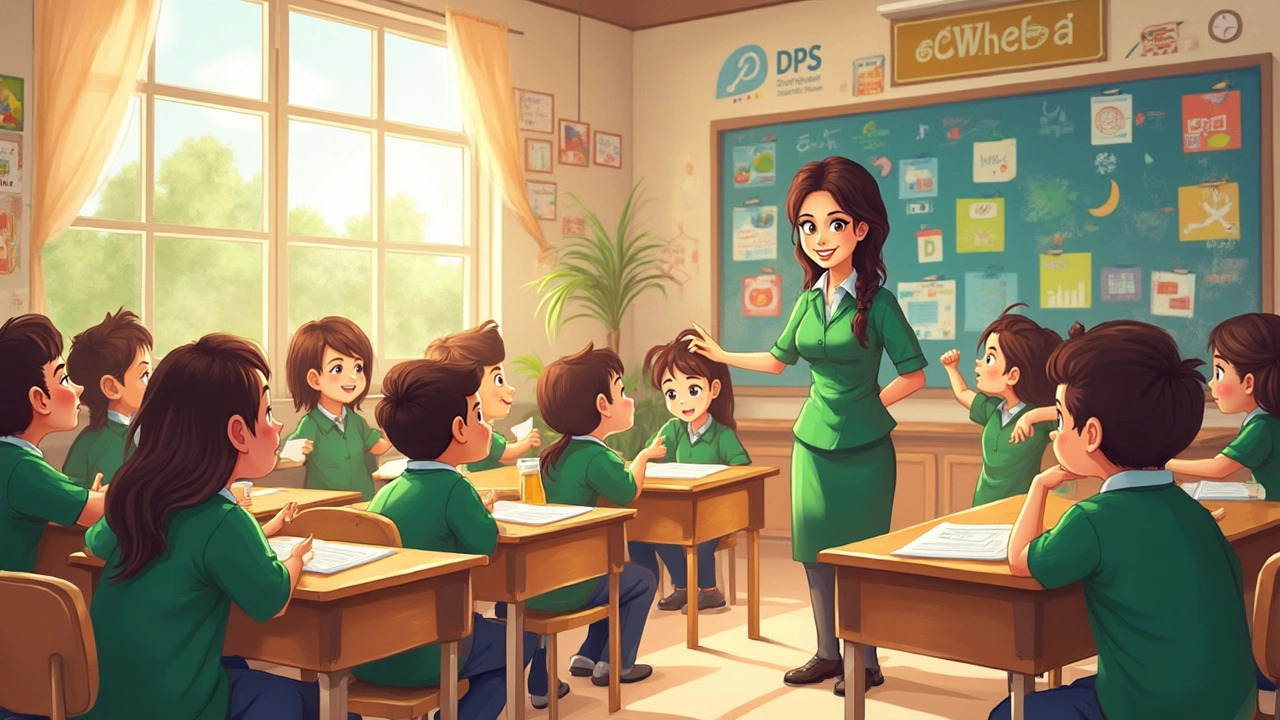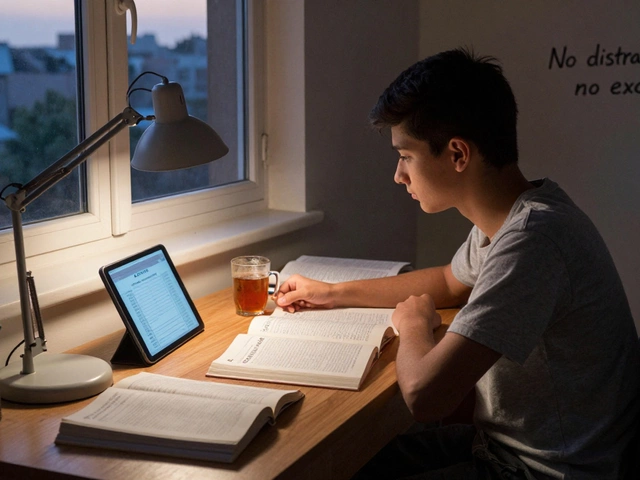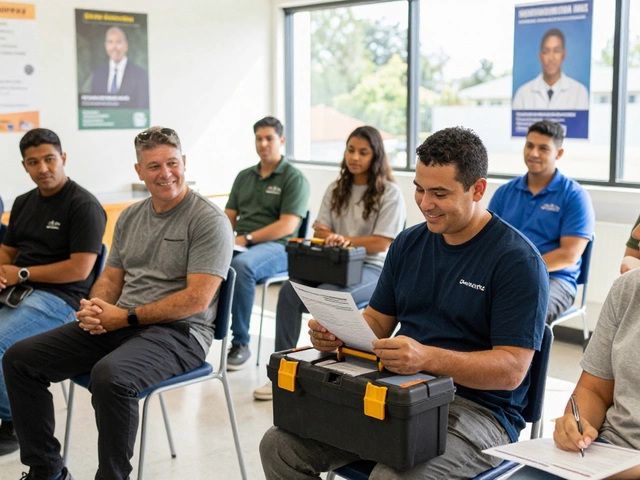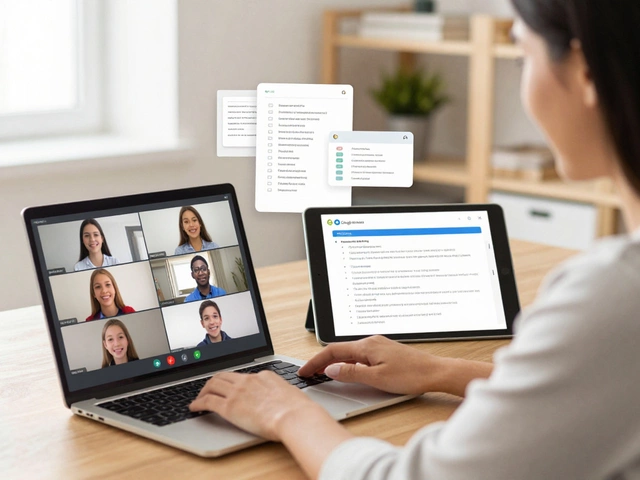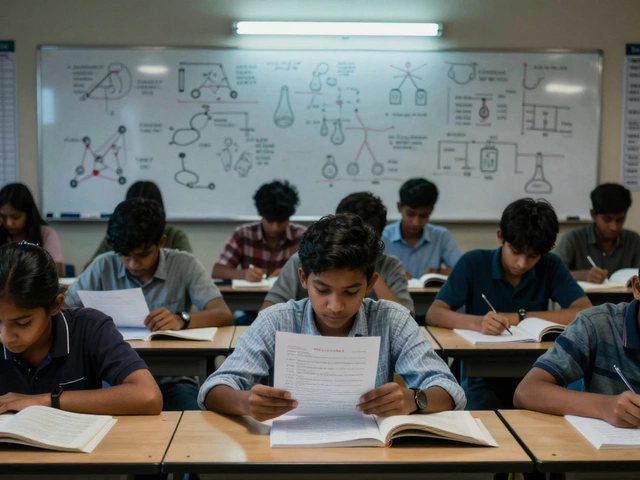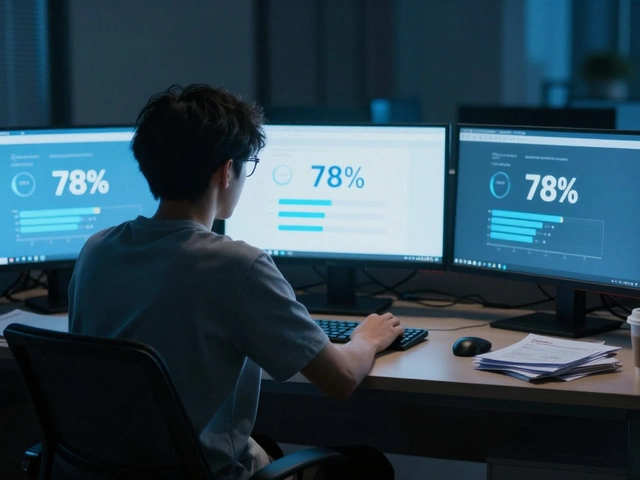Trying to figure out if Delhi Public School is ICSE or CBSE? You’re not alone—parents land on this question all the time, and trust me, it’s not just a random detail. The school board can change your child’s whole school experience.
Here’s the clear answer: almost all Delhi Public School branches follow the CBSE board. You’ll spot ‘CBSE-affiliated’ on their signs, forms, and even on their website. You won’t find DPS offering the ICSE curriculum—it’s just not their thing. If someone tells you otherwise, they’re mixing up facts or thinking of some other school.
Why does this matter? Well, the syllabus, exam style, and even the kind of stress students go through can depend on which board they’re under. CBSE is famous for its straightforward approach and national consistency, while ICSE goes a bit deeper with languages and arts. If you’re confused about what these names mean or why DPS picked CBSE, you’re actually asking really smart questions. Let’s break it all down without the confusing educationese.
- What Does DPS Stand For?
- CBSE vs ICSE: The Main Differences
- Which Board Does Delhi Public School Follow?
- Why Delhi Public School Chose CBSE
- Tips for Parents Choosing Between CBSE and ICSE
- Fun Facts and Common Misconceptions About DPS
What Does DPS Stand For?
DPS stands for Delhi Public School. It’s a name you’ll hear a lot when folks are talking about top schools in India. The Delhi Public School Society is the main group behind all these schools. They started back in 1949 with their first branch in Mathura Road, Delhi, and since then, the brand has spread like wildfire across India and even in a few other countries.
Today, there are over 200 DPS branches, and you’ll find them in every big city—Delhi, Bangalore, Hyderabad, Kolkata, and more. Some even pop up in places you wouldn’t expect, like Nepal, the UAE, and Singapore.
What makes DPS different? It’s not just the big, green logo or their famous uniforms. The school is known for its strict academic standards, focus on sports and co-curriculars, and a pretty competitive vibe. Most people see DPS as a ticket to quality education and all-round development, so it’s no surprise parents are so keen on getting their kids in.
One thing students from DPS share is a sense of strong school spirit. The alumni list is packed with big names who’ve done well in everything from business to sports. No wonder there’s so much talk about getting that DPS edge for your child.
CBSE vs ICSE: The Main Differences
Parents get caught up on the big question: What’s so different about CBSE and ICSE? Here’s what actually stands out when you compare these two school boards in India.
- CBSE (Central Board of Secondary Education) is managed by the central government, while ICSE (Indian Certificate of Secondary Education) is run by the Council for the Indian School Certificate Examinations, a national private body.
- CBSE is popular for its uniform syllabus and simple exam patterns. It works best for families who move a lot—most cities have CBSE schools, so you don’t have to worry about catching up on missed topics if you switch schools.
- ICSE covers subjects in a bit more detail, especially languages, arts, and practical knowledge. Expect English to get a heavy push if your child is in an ICSE school. Kids here end up learning more theory and even do internal assessments (meaning, school-work matters for final grades, not just the big tests).
- Syllabus-wise, CBSE leans more on science and math, and is closely linked to engineering and medical entrance tests like JEE and NEET. ICSE has a broader subject range, which works out for students thinking about management, arts, or job-hunting abroad.
- In terms of marks, CBSE sticks to a number system (like 95 out of 100), while ICSE often gives grades along with marks. Also, CBSE exams usually have more objective-type questions (think: MCQs), so studying here means fewer essays to write.
A quick heads-up: If your child aims for government jobs or Indian college entrance exams, CBSE gives a slight edge because most of those tests use the CBSE pattern. If you care more about language skills, ICSE gets the points.
That said, Delhi Public School has always been loyal to CBSE—and that’s a reason lots of parents pick it.
Which Board Does Delhi Public School Follow?
If you scroll through any list of top schools in India, you'll see Delhi Public School (DPS) popping up everywhere. Now, here’s the truth: DPS schools across the country are almost always linked with the CBSE board. That’s the Central Board of Secondary Education, and it’s the most widely followed board for secondary and senior secondary education in India.
Every DPS branch, whether it’s in big cities like Delhi, Bangalore, or smaller towns, works under strict CBSE affiliation. The head office maintains this standard, so if you’re thinking about ICSE, DPS simply isn’t the place. You can double-check this on the official DPS Society website or the CBSE’s own affiliation directory—each DPS school appears on those lists with its unique code.
Here’s what the data looks like for some of the well-known DPS branches as of 2025:
| DPS Branch | City | Board Affiliation | CBSE Affiliation Code |
|---|---|---|---|
| DPS RK Puram | Delhi | CBSE | 2730043 |
| DPS Noida | Noida | CBSE | 2130063 |
| DPS Bangalore East | Bangalore | CBSE | 830351 |
| DPS Bhopal | Bhopal | CBSE | 1030240 |
There might be rare exceptions where a school uses the DPS name unofficially and offers something else, but the actual DPS Society schools stick with CBSE. If you want to check a particular branch, just ask for their CBSE affiliation number or go to the official CBSE website and search them up—it’s public info.
So, if your focus is on the CBSE syllabus and exams, DPS is a safe and reliable bet. There’s no need to worry about unexpected shifts to ICSE or other boards down the road, which is a relief for both parents and students looking for stability.
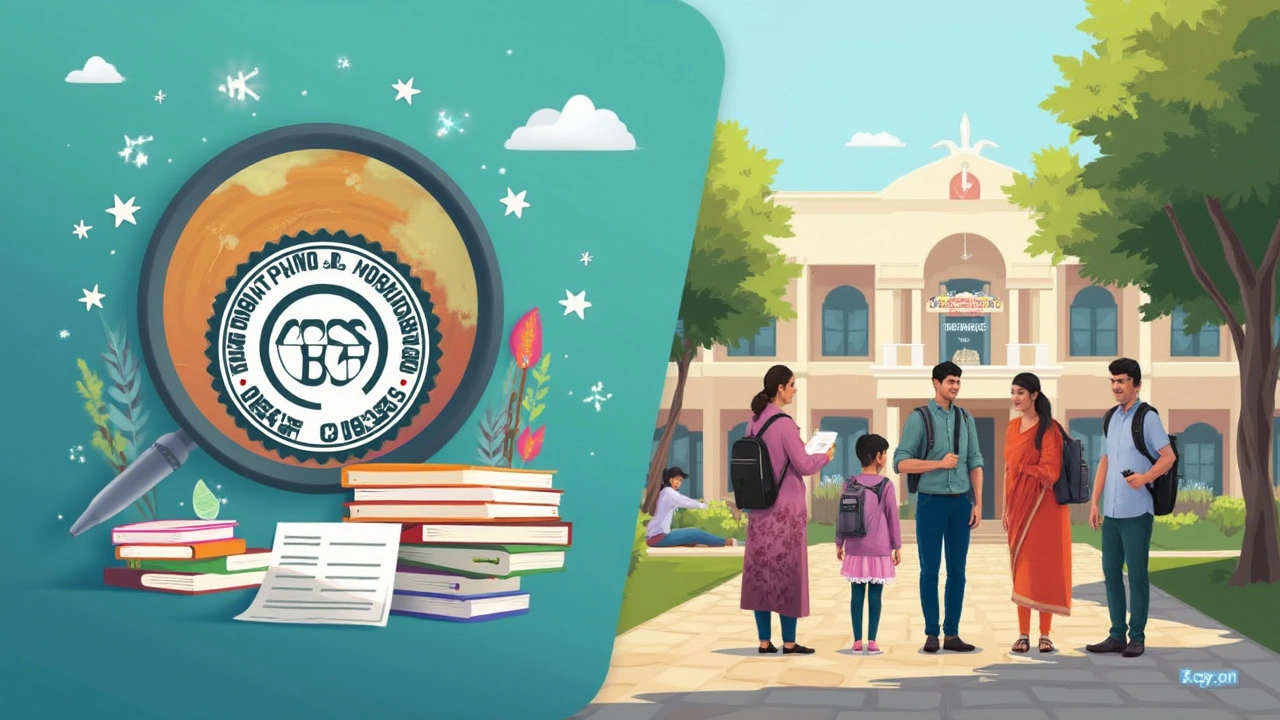
Why Delhi Public School Chose CBSE
So, why did Delhi Public School settle on CBSE instead of ICSE or anything else? There’s actually a bunch of solid reasons—and knowing them can save you a lot of head-scratching during those school admission decisions.
The Central Board of Secondary Education (CBSE) is recognized by the Indian government and has national-level reach. What’s cool about this? It means students who move cities (popular with transfers in jobs like the armed forces, railways, banks—think DPS parents) don’t face syllabus whiplash. They can drop into a new DPS in another state and pick up right where they left off. That national uniformity is a lifesaver for families on the go.
Colleges and competitive exams in India—like JEE (engineering) and NEET (medical)—are tightly synced with the CBSE syllabus. DPS wanted to give kids a fighting chance in those big exams. The CBSE format is straightforward, less memory-based, and focuses more on concepts than rote learning. That’s a huge deal for kids who dream big about Indian entrance exams.
On top of that, running hundreds of schools under one big chain gets much easier with one uniform board. DPS management doesn’t have to juggle different boards, exam dates, or curricula. Training teachers and updating books also becomes way simpler across every branch.
One more thing: CBSE is available in both Hindi and English. DPS can welcome kids from different regions or backgrounds without putting anyone at a language disadvantage. Plus, the board’s rules let schools shape their own activities, sports, and co-curricular stuff. DPS uses that freedom for annual fests, sports events, and even their famous Model United Nations meets.
In short, DPS stuck with CBSE because it keeps things simple, flexible, and focused on what most Indian families need. If you want a school that helps your kid fit in anywhere in India and line up well for national-level exams, CBSE through DPS just clicks.
Tips for Parents Choosing Between CBSE and ICSE
Picking between CBSE and ICSE is a big deal because it can change how your child's school life pans out and what doors open up after school. Both are solid boards, but they suit different needs. Here’s how to decide what’s best for your family.
- CBSE (Central Board of Secondary Education) lines up perfectly with national-level entrance tests like JEE and NEET. If your child might go for engineering or medical, this makes exam prep a lot less stressful.
- ICSE (Indian Certificate of Secondary Education) is strong in English, literature, and creative subjects. If you see your kid leaning into arts or even planning to study abroad, ICSE’s detailed syllabus might give them a head start.
- Transferring schools? CBSE is almost everywhere in India and abroad. Makes things smoother if you ever relocate.
- You’ll find most Delhi Public School branches only offer CBSE. If you’re set on DPS, the decision is kind of made for you. But it’s still smart to know why.
- CBSE is less focused on internal projects and lab work, which means students spend more time on textbook clarity. ICSE throws in more classroom projects, which some kids love, but others can find overwhelming.
Here’s a quick side-by-side for easy reference:
| Feature | CBSE | ICSE |
|---|---|---|
| Popular Subjects | Math, Science | English, Arts, Science |
| Exam Pattern | Objective, direct | Descriptive, detailed |
| Transferability | Wide (India + abroad) | Limited |
| Entrance Exam Alignment | High (JEE/NEET etc.) | Moderate |
| Internal Assessment | Less | More |
If your top goal is a stress-free school transfer or smooth ride for national entrance exams, CBSE is a safe bet. But if your kid thrives with lots of creative work and maybe even international plans, ICSE can be a good fit.
Take an honest look at your child’s style—do they love working out detailed essays and projects, or do they prefer clear instructions and straight answers? Keep future goals and your family’s moving plans in mind. Ask other parents too; real stories often reveal the small stuff everyone else skips over.
Fun Facts and Common Misconceptions About DPS
The Delhi Public School brand is everywhere—people even call it ‘DPS’ like it’s some secret code. But there’s more to these schools than just their green blazers and intimidating buildings. Let’s bust some myths and share some juicy facts that even many parents miss out on.
- DPS doesn’t offer ICSE. This one comes up all the time. Despite what folks might say at coaching classes or in your neighborhood WhatsApp group, Delhi Public School is about the CBSE board, not ICSE. If a school says it’s “Delhi Public School” and claims to be ICSE, check for fake or unaffiliated branches.
- The first DPS was started way back in 1949 in Delhi. It’s older than many Indian movie classics and even older than most of our parents’ schooling days. That’s how locked-in this brand is with the Indian education scene.
- DPS isn’t just one school, it’s a huge network. There are hundreds of DPS branches spread across India and abroad—in places you’d least expect, like Nepal and even Singapore. However, almost all follow the CBSE curriculum, keeping things consistent no matter which city you’re in.
- A lot of people think DPS is only for super-rich kids. Not true. While the main Delhi branches can have a reputation for being fancy, plenty of DPS schools in smaller towns are actually affordable and cater to middle-class families.
- Don’t get confused by lookalikes. Every so often, you’ll spot schools with ‘Public School’ in their name and green uniforms, but they have nothing to do with the DPS Society. Always double-check if you care about brand reputation and board consistency.
- Famous alumni alert! DPS has churned out some big names—think Sushmita Sen, Randeep Hooda, and even top cricketers. Their ex-student network is a massive support system in admissions and careers.
Hopefully, these facts clear up the noise. When you hear ‘Delhi Public School,’ think solid CBSE roots, a massive network, and a reputation that’s hard to beat.
